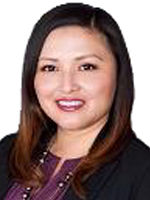State Bar changes may undermine your practice
CAOC is fighting for you against movement to allow non-lawyers to own law firms and practice law
SACRAMENTO UPDATE
The State Bar is continuing its push to create a new category of legal paraprofessionals and to allow non-lawyers to own law firms or permit apps to offer legal advice. CAOC has been extremely active in this area since the State Bar formed its Task Force on Access Through Innovation of Legal Services more than a year and a half ago. After we solicited hundreds of comments in opposition to the task force’s initial report, we spent months meeting with State Bar leadership and their lobbyists to dispel myths that this deregulatory approach would lead to increased access to justice for the underserved.
As a result, CAOC member Carolin Shining was appointed to the task force’s Paraprofessional Working Group. In that role she has been a tireless advocate for plaintiffs’ attorneys and the consumers we represent. In addition, we have recruited speakers to appear at many subcommittee meetings to express our concerns.
Our hard work is paying off. After our efforts at the subcommittee level, we were able to remove several areas from consideration for allowing representation by ill-equipped paraprofessionals. In the consumer debt area, we were able to exclude car repossession or defect/warranty issues, identity theft, bankruptcy, unfair or deceptive lending practices, problems with credit repair services and payday short-term lender issues.
We continue to work to remove representation of debtors in enforcement of judgment and debt collection, which is very complex and requires competent representation by legal counsel.
The committee continues to deliberate on narrower issues, including permitting paraprofessional representation in enforcement of small claims judgments and representation of creditors in wage and hour claims in limited jurisdiction cases. We will continue to monitor these remaining areas but consider the wins made in this area significant.
In the employment area, the paraprofessional subcommittee also voted to remove from consideration cases involving unfair termination, sexual harassment and intimidation, workers’ compensation, unsafe working conditions, failure to accommodate disability and workplace grievances that are ignored. None of this was a foreordained conclusion, and there were a number of difficult discussions and debates on these topics in the committee.
The inclusion of some form of full scope representation at the administrative agency level where non-attorneys are currently authorized to represent parties in administrative proceedings by state law is still being debated.
The subcommittee on health debated whether to allow paraprofessional representation in medical billing, denial of medical insurance and denial of medical services or equipment cases. On March 26, the subcommittee voted against permitting paraprofessional representation on these issues.
Currently, regulation and licensing are being debated. We are investigating how much of this paraprofessional licensing and regulatory scheme can be done solely through the Supreme Court without Legislative input. If you have expertise in this or any other remaining topic, please reach out to us.
If the State Bar Board of Trustees adopts the larger working group’s recommendations, they have stated they plan to implement the paraprofessionals scheme as a “pilot program” administered and regulated by the California Supreme Court. The pilot would be “phased in” but not limited in duration, which means it could be expanded at a future date. Initial practice areas would be Family Law, Housing and Collateral Criminal. The program would be phased in based on geographic areas, starting with three Northern counties (Alameda, Santa Clara, and Sacramento), three Central counties (Fresno, Merced, and Tulare) and one Southern county (Orange).
Even more of a threat than allowing non-licensed attorneys to practice law is the prospect of allowing corporations and nonlawyers to own law firms, which is also under consideration by the State Bar’s Closing the Justice Gap Working Group. What would that mean? The practice of law by iPhone apps; no conflicts check; no attorney-client privilege; no fiduciary duties; none of the ethical constraints that govern attorneys in California.
Rest assured we are fighting hard against this as well. Micha Star Liberty, CAOC’s 2020 president, was appointed to the committee considering this issue. That committee met for the first time in January and will continue to meet over the next two years before reporting to the State Bar. CAOC will have a strong voice in these proceedings. There is much work for us to do to protect the public and ensure the important call for “access to justice” is not a convenient cloak to hide corporate greed.
We encourage you to get involved to prevent the undermining of your practice, and we welcome your input as we continue the fight. Please contact Nancy Drabble (ndrabble@caoc.org) or Jacquie Serna (jserna@caoc.org) with any questions.
Jacquie Serna

Jacquie Serna joined CAOC in 2011. Jacquie has worked to ban secret settlements in sexual harassment cases, enact crucial consumer protections for elder abuse victims, require that doctors check the state-wide database before prescribing dangerous opioid drugs, and ensure fair and just compensation for injured undocumented immigrants. Jacquie specializes in employment and consumer protections and has spent the past eight years at CAOC fighting the harmful effects of forced arbitration. Born and raised in Boyle Heights, Los Angeles, Jacquie is a proud "Double Bruin," receiving her bachelor's and law degree from UCLA.
Copyright ©
2025
by the author.
For reprint permission, contact the publisher: Advocate Magazine
